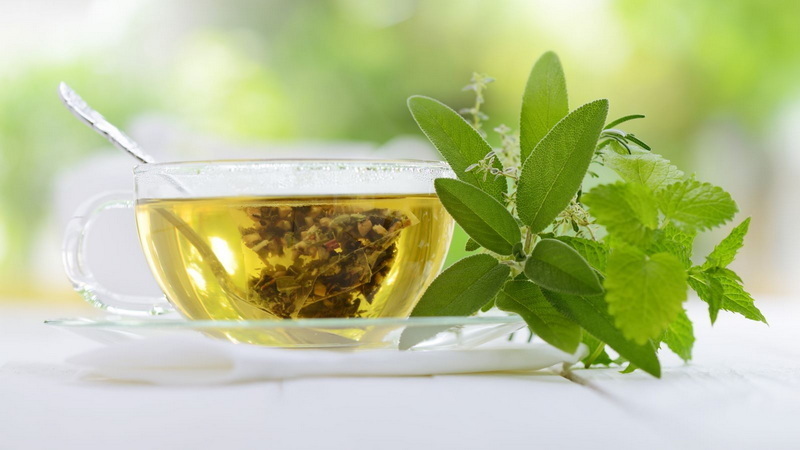Content Menu
● What is Green Tea Extract?
● Benefits of Green Tea Extract
● Risks and Side Effects
● How to Consume Green Tea Extract
● Recommended Dosage
● Best Practices for Consumption
● Conclusion
● FAQ
>> 1. Is it safe to drink green tea extract every day?
>> 2. Can I take green tea extract if I have liver issues?
>> 3. Will drinking green tea extract make me jittery?
>> 4. How does green tea extract help with weight loss?
>> 5. Are there any interactions between green tea extract and medications?
● Citations:
Green tea extract, derived from the leaves of the Camellia sinensis plant, has gained popularity for its potential health benefits. This article explores whether you can safely drink green tea extract, its benefits, risks, and important considerations for consumption.

What is Green Tea Extract?
Green tea extract is a concentrated form of green tea that retains many of its beneficial compounds, particularly catechins, which are powerful antioxidants. The most notable catechin in green tea is epigallocatechin gallate (EGCG), known for its numerous health benefits. Unlike black tea, which undergoes oxidation, green tea is minimally processed, preserving its high antioxidant content.
Benefits of Green Tea Extract
1. Antioxidant Properties
Green tea extract is rich in antioxidants that combat oxidative stress and free radicals in the body. This can help reduce inflammation and lower the risk of chronic diseases. The antioxidants in green tea extract have been shown to improve overall health by protecting cells from damage and promoting longevity.
2. Weight Management
Numerous studies suggest that green tea extract may aid in weight loss by boosting metabolism and enhancing fat oxidation. A systematic review indicated that supplementation with green tea extract significantly reduces body fat percentage and increases antioxidant capacity. While results can vary, some users report modest weight loss when combined with a healthy diet and exercise.
3. Cardiovascular Health
Regular consumption of green tea has been linked to improved heart health. It may help lower cholesterol levels and reduce the risk of heart disease by improving blood circulation and reducing arterial plaque formation. Research shows that drinking 2 to 3 cups of green tea daily can lead to significant improvements in cardiovascular health markers.
4. Cancer Prevention
Some research indicates that the antioxidants in green tea extract may help inhibit cancer cell growth. A study found that men at risk for prostate cancer had a significantly lower likelihood of developing the disease when consuming green tea catechins regularly. While results are promising, more studies are needed to confirm these effects in humans.
5. Liver Health
While moderate consumption of green tea is generally safe, high doses of green tea extract have been associated with liver damage in some individuals, particularly those with certain genetic predispositions or pre-existing liver conditions. It's crucial to monitor your intake and consult a healthcare professional if you have concerns.
6. Skin Health
Green tea extract has been shown to improve skin health both when consumed and applied topically. Studies indicate that it may help reduce acne and protect against UV damage due to its anti-inflammatory properties. Additionally, applying creams containing green tea extract has shown improvements in skin elasticity and hydration.
7. Neuroprotective Effects
Research suggests that the catechins in green tea may provide neuroprotective benefits, potentially lowering the risk of neurodegenerative diseases such as Alzheimer's and Parkinson's disease. EGCG has been found to inhibit neurotoxicity and promote brain health by activating autophagy processes, which help clear damaged cells.

Risks and Side Effects
Although green tea extract offers several health benefits, it is essential to be aware of potential risks:
- Liver Damage: High doses of green tea extract can lead to liver toxicity, especially in individuals with pre-existing liver conditions or specific genetic variations.
- Gastrointestinal Distress: Some users may experience nausea, vomiting, or diarrhea when consuming concentrated forms of green tea due to its tannin content.
- Caffeine Sensitivity: Green tea contains caffeine, which can cause insomnia, irritability, or increased heart rate in sensitive individuals. It is advisable to monitor your total caffeine intake from all sources.
- Drug Interactions: Green tea extract may interact with certain medications, including blood thinners and beta-blockers. Consult a healthcare provider before starting supplementation if you are on medication.
- Anxiety Disorders: The caffeine in green tea might exacerbate symptoms for those with anxiety disorders or panic attacks.
How to Consume Green Tea Extract
Green tea extract can be consumed in various forms:
- Capsules: These provide a concentrated dose of EGCG and other catechins without the need to brew tea.
- Powder: Matcha powder is a form of green tea that can be mixed into smoothies or baked goods.
- Beverages: Drinking brewed green tea is a safe way to enjoy its benefits without the risks associated with high-dose extracts.
Recommended Dosage
For those considering supplementation, it is generally recommended to consume around 250–500 mg of green tea extract per day, standardized to contain 45-50% EGCG. This dosage has been shown to be effective while minimizing potential side effects. Consuming 3–5 cups of brewed green tea daily can also provide similar benefits without the risks associated with concentrated extracts.
Best Practices for Consumption
To maximize the benefits while minimizing risks:
- Take with Food: It's best to take green tea extract with food to reduce gastrointestinal side effects and enhance absorption.
- Stay Hydrated: Ensure adequate water intake throughout the day when consuming caffeinated products like green tea.
- Monitor Total Caffeine Intake: Be mindful of your total caffeine consumption from all sources (coffee, energy drinks) to avoid adverse effects.
- Consult Healthcare Providers: Always consult with a healthcare provider before starting any new supplement regimen, especially if you have existing health conditions or are taking medications.
Conclusion
In summary, drinking green tea extract can offer numerous health benefits when done responsibly. While moderate consumption is generally safe for most people, high doses should be approached with caution due to potential risks such as liver damage and gastrointestinal issues. Always consult a healthcare provider before starting any new supplement regimen to ensure it aligns with your individual health needs.

FAQ
1. Is it safe to drink green tea extract every day?
Yes, moderate consumption (up to 500 mg per day) is generally considered safe for most people.
2. Can I take green tea extract if I have liver issues?
It is advisable to consult a healthcare provider before taking green tea extract if you have liver problems.
3. Will drinking green tea extract make me jittery?
Green tea contains caffeine; however, it typically provides a milder stimulant effect compared to coffee.
4. How does green tea extract help with weight loss?
Green tea extract may boost metabolism and enhance fat oxidation, aiding in weight management when combined with a healthy lifestyle.
5. Are there any interactions between green tea extract and medications?
Yes, green tea extract can interact with certain medications; consult your healthcare provider for guidance on potential interactions.
Citations:
[1] https://www.drugs.com/npp/green-tea.html
[2] https://www.healthline.com/nutrition/10-benefits-of-green-tea-extract
[3] https://pmc.ncbi.nlm.nih.gov/articles/PMC6412948/
[4] https://hsph.harvard.edu/news/green-tea-healthy-habit/
[5] https://www.webmd.com/vitamins/ai/ingredientmono-960/green-tea
[6] https://senchateabar.com/blogs/blog/green-tea-side-effects
[7] https://www.mountsinai.org/health-library/herb/green-tea
[8] https://pubmed.ncbi.nlm.nih.gov/38031409/
[9] https://health.clevelandclinic.org/green-tea-extract-a-better-way-to-boost-energy-or-not
[10] https://www.medicalnewstoday.com/articles/269538






























